Kosova
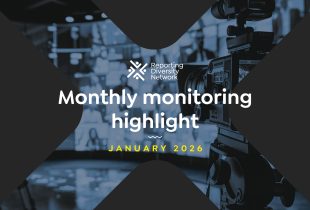
Monthly Highlights January: Sensationalism, Sexism and Nationalism
During January, the RDN monitoring team identified a range of hateful narratives and discourse driven by sensationalistic reporting, sexism and misogyny, nationalism and ethnic hatred. Sensationalistic and unprofessional reporting in Albania and Bosnia and Herzegovina Albanian media reported extensively on a serious case of sexual abuse involving a 12-year-old girl who was found to be approximately 22 weeks pregnant following a medical …

Monthly Highlights December
During December, the RDN monitoring team identified a range of hateful narratives and discourse driven by anti-LGBTQI+ discourse, sexism alongside the glorification of war criminals, the publication of unverified information and the normalisation of gender-basedviolence. Anti-LGBTQI+ discourse in Albania In two separate television appearances in December, lawyer Zace Islami made a series of extreme anti-LGBTQ+ statements on national broadcasters …
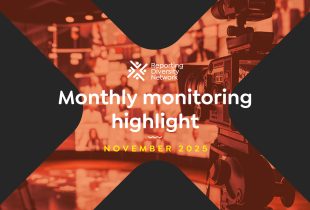
Monthly Highlights November: Hate speech, Threats and Sensationalism
During November, the RDN monitoring team identified a range of hateful narratives and discourse driven by hateful and harmful political speech, hate speech against journalists and sensationalistic reporting. Hateful and harmful speech in Albanian parliament During the parliamentary session debating the newly adopted Gender Equality Law, opposition leader Sali Berisha made a series of homophobic …
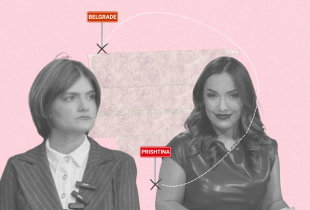
From Belgrade to Prishtina: Women Who Refused to Be Silent
On August 14, 2025, after one of many student protests in Belgrade, a group of students was attacked by the police while heading home and taken to a nearby garage. Among them was Nikolina Sinđelić, a survivor of police brutality. “As we were walking down Nemanjina Street, we encountered members of the JZO (Unit for …
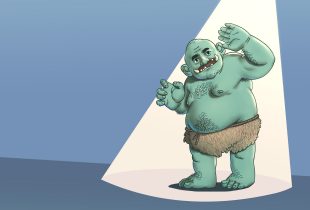
Troll of the Month: TV Klan Kosova
The Balkan Troll of the Month is an individual, a group of individuals or a media outlet that spreads hate based on gender, ethnicity, religion, or other diversity categories. The Balkan Troll is selected based on hate speech incidents identified across the Western Balkan region. On the evening of November 5, 25-year-old Daorsa Spahija from …
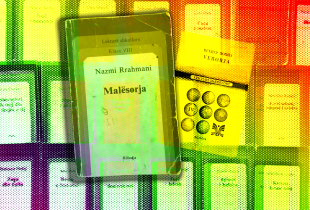
THE “UNALTERED” LITERATURE OF KOSOVAR SCHOOLS
LITERATURE IN SCHOOLS REPRODUCES DEROGATORY AND RACIST LANGUAGE WITHOUT CRITICAL EXAMINATION. The teacher reads aloud: “I thought I had come to the door of the magjyp” (a derogatory term for the Egyptian, Roma, and Ashkali communities), while the class listens in silence. Somewhere in the penultimate row, an Ashkali boy lowers his gaze. After this …
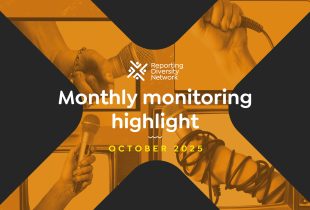
Monthly Highlights October: ethnic hatred, sensationalism, unprofessional reporting, sexism, and political motivations
During October, the RDN monitoring team identified a range of hateful narratives and discourse driven by ethnic hatred, sensationalism, unprofessional reporting, sexism, and political motivations. Ethnic hatred and violence in Montenegro Between 25 and 28 October 2025, a series of violent and xenophobic incidents unfolded in Montenegro following an attack in Podgorica’s Zabjelo neighborhood. Late …
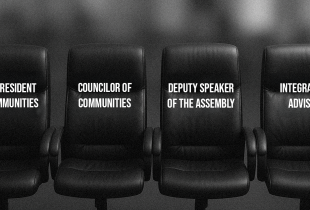
ARE WE READY FOR A LEADER WHO DOESN’T LOOK LIKE OUR MAJORITY?
The absence of Roma, Ashkali and Egyptians in state-building positions. After months of political deadlock, on August 26, Dimal Basha was elected Speaker of the Kosovo Assembly. This followed nearly 60 failed attempts, until a Constitutional Court ruling on August 8 limited Vetëvendosje (VV) to prosposing each candidate only three times. After none of the three ministers proposed …
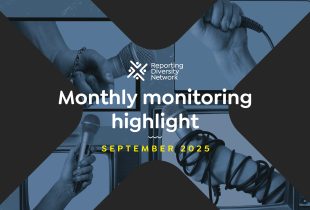
Monthly Highlights September: glorification of war criminals, ethnic hatred, misinformation and anti-LGBTQI+ rhetoric
During the month of September, the RDN monitoring team detected a range of hateful narratives and discourse fuelled by sexism and glorification of war criminals alongside anti-LGBTQI+ rhetoric, misinformation and ethnic hate speech. Sexism and glorification of war criminals in Bosnia and Herzegovina The cultural event “Kočićev zbor” (Kočić’s Assembly), held on August 29, 30, …
